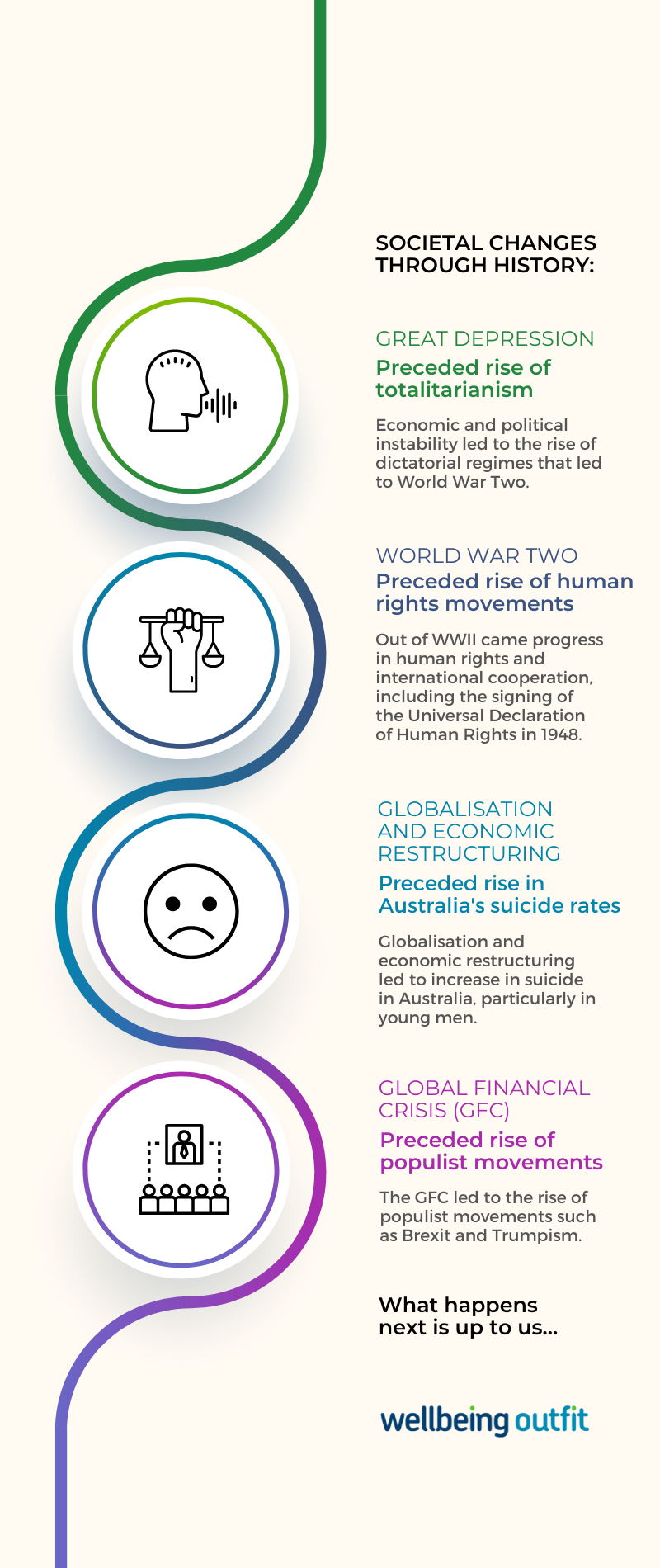Leaders, we need to talk.
We’re operating in a disrupted, high-risk environment. With this comes uncertainty, and with uncertainty comes stress.
These are obvious statements, and they show up in workplaces in a variety of ways – from the pervasive, unspoken frustration between colleagues with different comfort levels around time spent in the office versus WFH, to tense interactions between those who do as they're asked "for the greater good" – wear masks, follow safety measures – and those who choose not to. It seems everyone wants someone to do something different to what they're currently doing.
Achieving consensus around how best – or even whether – to return to the office, is fraught, but in the organisations making these decisions, we're seeing far less conflict in those that make the effort to consider people's preferred ways of working and personal capacity for risk-taking, than in those that mandate a return to the office without having these critical conversations.
It's not enough to hope that the challenges we're facing now will go away any time soon.
We need to accept that life, for the foreseeable future, is going to be vastly different to how it was in 2019, and understand that if every change feels extra hard, it's because everything's far more connected than we might think.
While the enormous uncertainty we faced during the pandemic heightened people's experience of burnout, it also magnified concerns that existed in the workplace long before COVID, as distinct from people feeling generally stressed or spread too thinly. This is because the main causes of burnout are rooted in organisational culture rather than in an individual's ability to cope – and as an organisational problem, an organisational response is needed.
History tells us that major societal crises are typically followed by major societal change.
History also tells us that big change is yet to come, and that if we create a story that's built around fairness and inclusivity – a story that everyone feels a part of – people will feel more positive and optimistic about the future.
What we do next matters.
Leaders can play a positive role in how the next big change is shaped, expressed and experienced by creating new work norms for their organisations that are based in reality.
These norms need to be created through consensus and negotiation and through establishing a new identity as part of a process that genuinely engages and connects people to their purpose, to each other, and to their work in ways that work for them, their teams, and the organisation.
Doing this takes time, and requires focus and effort, but not nearly as much as that needed to manage the fallout from people feeling like the things that are important to them are not heard or valued. An increase in interpersonal conflict, mental health claims, and unfair dismissal claims, are just some of the ways this will show up in the workplace if leaders don't make way for these critical conversations.
We can help leaders facilitate these conversations through the Culture Series.
The Culture Series comprises two programs: the Culture Architect for organisations and teams, and the Personal Architect for individuals. Both programs are run over 3 x 2-hour workshops, and can be delivered either face-to-face or online.
For more information, download this overview (PDF) or contact Carolyn Morey to arrange a 30-minute call to discuss your organisation’s specific requirements. We'd love to help.
While we're here:
📅 Jono Nicholas, Wellbeing Outfit's Managing Director, is speaking at:
The Workplace Mental Health Symposium, Sea World Resort Conference Centre, Gold Coast, 22-24 August 2022. Representing EY Oceania in his role as Chief Mental Health Advisor, Jono will participate in a panel discussion with his counterparts at Xero and Commonwealth Bank about what their position entails, and what it means for the future of workplace mental health.
APAC's largest workplace and workforce transformation event, the Future Place REwork Summit 2022, Sofitel Wentworth Sydney + virtual, 7-8 September 2022. Jono will participate in a panel discussion with the Health, Safety and Wellbeing leads from Lendlease and Optus on the topic of 'Wellbeing, fairness and social connections in the workplace transition'. Use this code to apply a 10% discount to the cost of registration: REW10SPK
Complete the form below 👇 to receive occasional updates from the Wellbeing Outfit in your mailbox.

